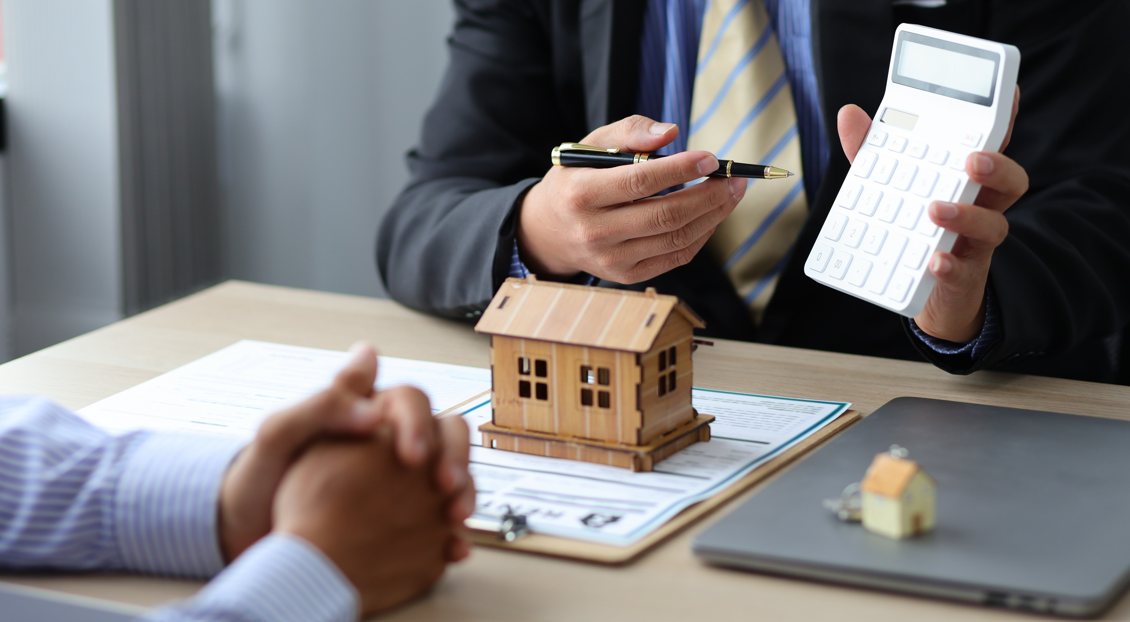Property deeds: What are they and how should you safeguard them?
What exactly are property deeds?
Property deeds are the legal records that establish ownership of a property and its land. These documents are managed by HM Land Registry, which is responsible for maintaining land and property records across England and Wales.
If you've bought, inherited, received, or taken a mortgage out on a property, it must be registered with the Land Registry.
When you register a property with the Land Registry for the first time, they'll make a scanned copy of the original title deeds. These copies are then given back to whoever submitted them, usually your solicitor or conveyancer.
Are there regional differences?
HM Land Registry exclusively handles land and property matters in England and Wales. Scotland and Northern Ireland have separate registers for their respective properties.
What do title deeds look like?
Property deeds, also known as title deeds, are primarily digital records. Although the original deeds may exist as physical documents, copies are stored electronically and are continuously updated with each change of ownership, serving as a historical record of property ownership. You can search the register to check if your property is registered.
Accessing your property deeds
When you purchase a property, your solicitor typically provides you with a copy of the 'registered title' within a month of completion. This document confirms your ownership and serves as evidence of registration with the Land Registry.
Register today! Be amongst the first to see new listings and off-market homes for sale in your area.
Land registry fees
The Land Registry charges fees based on the type of transaction, such as first registrations or property transfers. Your solicitor will discuss the exact costs applicable to your property.
The below images outline some more details on the scales.
| Value or amount |
Apply by post |
Apply using the portal or Business Gateway, for transfers or surrenders which affect the whole of a registered title |
Apply using the portal or Business Gateway, for registration of all leases and transfers or surrenders which affect part of a registered title |
Voluntary first registration (reduced fee) |
| 0 to £80,000 |
£40 | £20 | £40 | £30 |
| £80,001 to £100,000 |
£80 | £40 | £80 | £60 |
| £100,001 to £200,000 |
£190 | £95 | £190 | £140 |
| £200,001 to £500,000 |
£270 | £135 | £270 | £200 |
| £500,001 to £1,000,000 |
£540 | £270 | £540 | £400 |
| £1,000,001 and over |
£910 | £455 | £910 | £680 |
Scale 2 fees
| Value or amount |
Apply by post |
Apply using the portal or Business Gateway, for transfers of whike charges and other applications of whole of registered titles |
Apply using the portal or Business Gateway, for registration of transfers of part, and all other Scale 2 applications that do not affecr the whole of a registered title |
| 0 to £80,000 |
£40 | £20 | £40 |
| £100,001 to £200,000 |
£60 | £30 | £60 |
| £200,001 to £500,000 |
£80 | £40 | £80 |
| £500,001 to £1,000,000 |
£120 | £60 | £120 |
| £1,000,001 and over |
£250 | £125 | £250 |
You can find out more about the fees at gov.uk
Selling your property without deeds
If your property is registered with the Land Registry, you don’t need the deeds to confirm your ownership and sell the property. The Land Registry keeps a record of who owns what land and buildings in England and Wales, so they have all the information you need to sell your home.
But it's still smart to keep a copy of your deeds handy, even if your property is registered. The original deeds can give you extra details, like where exactly your property lines are.
Sometimes, when you buy a property that's already registered, the seller might not hand over the original deeds. They're not legally required to. Finding those original deeds can be tough, especially if the property has changed hands a lot. But you can check the Land Registry to get a scanned copy of your deeds using your property’s title number.
If you really want to find the original deeds, they might be with the solicitor who helped you buy the property or with your mortgage company. They could give you a hand in tracking them down.
Safekeeping your deeds
While the Land Registry stores electronic copies of property deeds, keeping your own copy at home is prudent for reference and organization. Store them securely in a folder or filing cabinet alongside other important documents.
What to do if you lose your deeds
Losing property deeds is uncommon since they're digitally registered with HM Land Registry. However, if the property is unregistered, the seller is responsible for providing the original deeds. If you misplace them, contact your solicitor to initiate a deeds request form with the Land Registry. There may be a small fee for this service.
Thinking about buying a property?
We help you through every steps of buying a home. Check out our buying process guide for a stress-free move.
Our team is available seven days a week! Visit your local branch or for personalized assistance.








